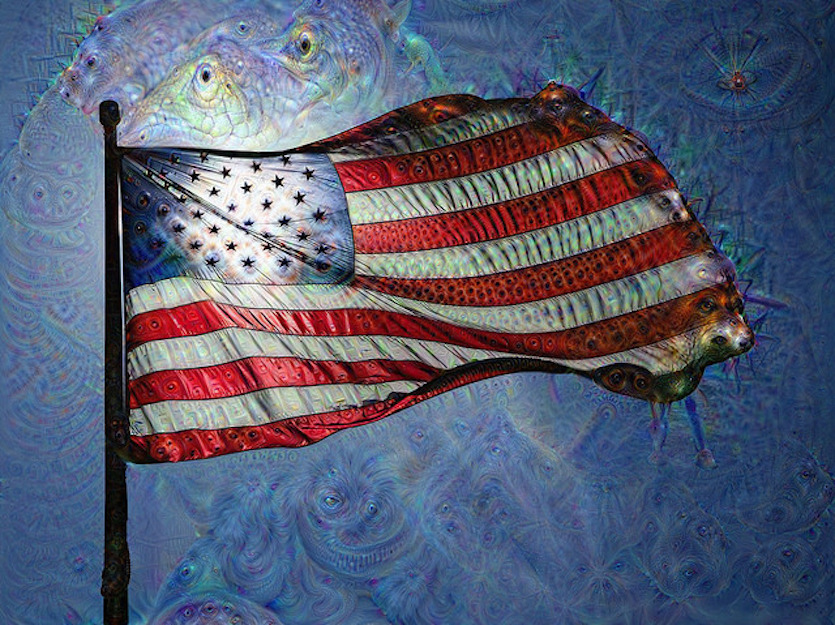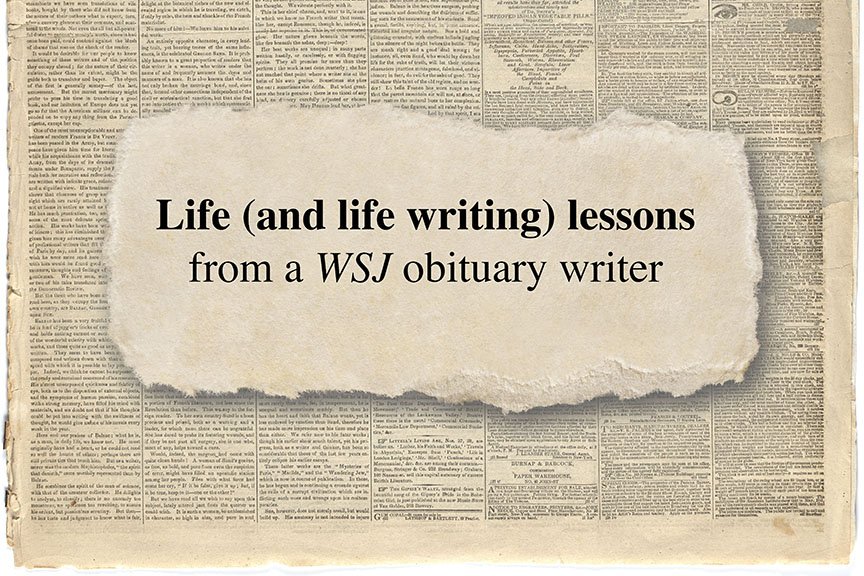
The intellectual landscape of American letters recently marked the passing of Joan Mellen, a figure whose extensive body of work consistently provoked thought, challenged convention, and ignited debate. Mellen, a prolific author and long-serving English professor at Temple University, died on June 30 at her home in Pennington, N.J., at the age of 83. Her death, while not widely reported, signals the end of a career characterized by an unwavering commitment to in-depth research and a distinctive, often combative, intellectual style.
Across twenty-five books and decades of teaching, Professor Mellen carved out a unique space in academia and journalism. She traversed genres ranging from film criticism and biography to deeply researched investigations into American history, including the assassination of President John F. Kennedy. Her legacy is one of a scholar who dared to question, to delve beneath the surface, and to present complex figures and events with an unflinching gaze, regardless of the discomfort it might cause.
Her singular approach garnered both fervent admirers and sharp critics, a testament to the profound impact of her scholarship. This article offers an in-depth look at the life and work of Joan Mellen, exploring the key aspects of her remarkable career that cemented her reputation as an authoritative, inquisitive, and formidable participant in whatever intellectual territory she chose to explore.

1. **Academic Foundation and Early Career**: Joan Mellen’s journey as a formidable intellectual began with a solid academic foundation, which provided the bedrock for her extensive career. Born Joan Spivack on September 7, 1941, in the Bronx, she graduated from Hunter College in 1962, subsequently earning both her master’s and doctoral degrees in English from the City University of New York. This rigorous academic training equipped her with the analytical tools and critical perspective that would define her later work.
She joined the faculty of Temple University in 1966, where she dedicated many decades to teaching as a professor of English and creative writing. Her commitment to education was formally recognized in 2004 when she received one of Temple University’s coveted “Great Teacher” awards. This honor underscored her impact not just as a scholar, but as an inspiring educator who pushed her students to think critically and challenge established norms.
Throughout her tenure, Professor Mellen was known as a tough but respected professor. Her former student and longtime research assistant, Audrey Szepinski, recalled that Mellen “always encouraged us to fight back, even about the tiniest of things.” This ethos of intellectual rigor and combative engagement was not merely a personal trait; it was a pedagogical principle that she imparted to generations of students, shaping their approach to scholarship and critical inquiry.
Read more about: Unpacking the Complex Life and Enduring Career of Pete Davidson: From SNL Breakthrough to Public Scrutiny

2. **Pioneering Film Criticism**: Before she ventured into the contentious world of sports biographies and political assassinations, Joan Mellen established herself as a significant voice in film criticism. Her early works in the 1970s demonstrated a keen intellect and a nuanced understanding of cinema, laying the groundwork for her later, broader intellectual pursuits. She was recognized as an “extremely well-informed critic” by peers such as the novelist Larry McMurtry.
Her contributions to film studies included “Filmguide to ‘The Battle of Algiers’” (1973), a focused analysis of a seminal work of political cinema. This was followed by “Marilyn Monroe” (1973) and “Women and Their Sexuality in the New Film” (1974), where she delved into the complex portrayals of women in cinema. Larry McMurtry, in his review for The Washington Post, lauded “Women and Their Sexuality in the New Film” as “easily the best of the several recent books about the treatment of women in films,” highlighting Mellen’s insightful and critical approach to the subject.
Professor Mellen also demonstrated a deep fascination with global cinema, particularly Japanese film. Her books “Voices from the Japanese Cinema” (1975) and “The Waves at Genji’s Door: Japan Through Its Cinema” (1976) showcased her scholarly breadth and her ability to provide cultural and political context to cinematic art. Her early forays into film established her as a critic who was “neither politically nor cinematically naïve,” capable of discerning layers of meaning often missed by others.
Read more about: Unveiling the Enduring Luxury: Janet Jackson’s Illustrious Career and Cultural Impact

3. **The Genesis of “Bob Knight: His Own Man”**: One of the most notable and controversial chapters in Joan Mellen’s career began with an unexpected phone call in early 1987. The caller was Bobby Knight, the infamously irascible and authoritarian college basketball coach, who contacted her at Temple University. Knight was incensed by John Feinstein’s best-selling biography, “A Season on the Brink,” which depicted him as “vulgar, sexist and out of control.”
Professor Mellen had recently reviewed Feinstein’s book for The St. Petersburg Times, where she took a different stance, faulting it for “misunderstanding its subject.” She argued, “Knight is, above all, a teacher. Aggressively he gives his all. In this he is no different from the dedicated English or math teacher. The basketball players, like all students, are recalcitrant. They fight against learning. Knight’s advantage over other teachers lies in his access and control.” This perspective, which reframed Knight’s intensity as a pedagogical tool, resonated deeply with the coach.
Mr. Knight, charming on the phone, expressed his appreciation: “You’re a professor of literature? I just wanted to tell you I really liked what you wrote.” This improbable connection led Mellen to begin compulsively watching his games. She eventually arranged to write a profile of him for The New York Times, which she subsequently expanded into her own best-selling biography, “Bob Knight: His Own Man,” showcasing her distinctive ability to uncover new dimensions in widely discussed public figures.

4. **The Storm Surrounding “Bob Knight: His Own Man”**: Upon its release, Joan Mellen’s biography, “Bob Knight: His Own Man,” ignited a fierce debate, particularly among sportswriters who largely defended John Feinstein’s earlier portrayal. Many read Mellen’s book as a direct attack on Feinstein’s work, challenging the established narrative of Knight as an unbridled tyrant. This critical reception underscored Mellen’s willingness to go against the grain and offer an alternative, often unpopular, perspective.
The sportswriter Rick Telander, in his review for The Times Book Review, expressed a widely held sentiment, stating, “Even Mr. Knight should be embarrassed by this attempt to deify him.” Telander characterized Knight as “a complex, intelligent, honest, vulgar, troubling man,” suggesting that Mellen’s portrayal leaned too heavily toward idealization rather than a balanced assessment of his flaws alongside his strengths. This feedback highlighted the polarization Mellen’s work often inspired.
Characteristically, Professor Mellen did not shy away from the confrontation. She castigated The Times in a letter to the editor, arguing that Telander was an inappropriate reviewer because he worked for Sports Illustrated, which had published critical articles about Knight. She asserted that “Such breaches of journalistic ethics on the part of some sportswriters are a central theme of my book” and emphasized her focus on “Mr. Knight as a teacher, a topic not touched upon once by Mr. Telander.” The Times later published an Editors’ Note acknowledging that Mr. Telander should not have been chosen to review the book, validating Mellen’s astute observation of journalistic conflicts of interest.

5. **A Portrait of Intellectual Combativeness**: Throughout her career, Joan Mellen was defined by an intellectual combativeness that was as much a part of her persona as her rigorous scholarship. This trait, described by many who knew her, ensured that her presence in any intellectual territory was always authoritative, inquisitive, and frequently combative. Her former research assistant, Audrey Szepinski, candidly stated, “She was very confrontational in general, and she was proud of that.”
This combative spirit was not merely for show; it was an integral part of her pursuit of truth and her challenge to complacency. Ms. Szepinski further elaborated, “She always encouraged us to fight back, even about the tiniest of things. She was a tough professor, but you respected her.” This philosophy translated directly into her writing, where she meticulously scrutinized accepted narratives and was unafraid to expose what she perceived as misrepresentations or superficial analyses.
In Bobby Knight, Mellen found a “kindred spirit,” appreciating his own confrontational style, which she believed served a higher purpose in teaching. Her defense of Knight, emphasizing “their grace under pressure that’s at issue, not his,” perfectly encapsulates her willingness to challenge popular opinion and defend her subjects on her own terms. This unwavering stance, even in the face of widespread criticism, cemented her reputation as a formidable intellectual force who was always ready to engage in vigorous debate.
6. **Unveiling the JFK Assassination Complexities**: Beyond the sports world, Joan Mellen dedicated significant intellectual energy to one of America’s most enduring mysteries: the assassination of President John F. Kennedy. Her deep dive into this complex subject positioned her as a central, albeit often controversial, figure within the JFK research community. She approached the topic with the same investigative rigor and willingness to challenge official accounts that characterized her other works.
In 2005, she published “A Farewell to Justice: Jim Garrison, JFK’s Assassination, and the Case That Should Have Changed History.” This extensive work meticulously scrutinized the findings of the Warren Commission’s investigation, which she unequivocally dismissed as “bunk.” Mellen did not merely criticize; she offered her own interpretations, claiming that “operatives connected to the C.I.A. had framed Lee Harvey Oswald,” though she was not considered a mere “conspiracy theorist” by her peers due to her scholarly approach.
Her contributions extended to other related works such as “Our Man in Haiti: George De Mohrenschildt and the CIA in the Nightmare Republic” (2012) and “The Great Game in Cuba: CIA and the Cuban Revolution” (2016). Jefferson Morley, a former Washington Post reporter and Kennedy assassination investigator, praised her, noting, “She was a real scholar and a formidable one. She brought a different way of looking at things.” Mellen’s relentless pursuit of truth in this contentious area caused “ripples and reverberations within the federal government’s halls of power,” establishing her as an authority whose work demanded serious consideration.

7. **Diverse Biographical Subjects**: Professor Mellen’s intellectual curiosity extended far beyond film criticism and the contentious world of sports, cementing her reputation as an author of expansive scope. Throughout her extensive career, she demonstrated a remarkable ability to immerse herself in the lives of diverse public figures, producing a succession of biographies that showcased her commitment to uncovering the multifaceted realities of her subjects. Her prolific output, encompassing twenty-five books, included studies of artists, literary icons, and even a novel, attesting to her peripatetic intellectual tastes and her willingness to explore various narrative forms.
Her biographical subjects ranged widely, from the enigmatic life of Marilyn Monroe, whose biography she published in 1973, to the intricate literary partnership chronicled in “Hellman and Hammett: The Legendary Passion of Lillian Hellman and Dashiell Hammett” in 1996. Mellen also delved into the life of the novelist Kay Boyle with “Kay Boyle: Author of Herself” in 1994, offering an in-depth portrayal of a significant literary voice. These works underscored her capacity to engage with and illuminate the often-complex narratives of prominent cultural figures who shaped their respective eras.
An early biographical endeavor in 1982, “Privilege: The Enigma of Sasha Bruce,” examined the slain daughter of American diplomat David K. E. Bruce, revealing Mellen’s early inclination toward subjects steeped in both public interest and personal tragedy. This book highlighted her skill in navigating sensitive personal histories, often uncovering details that challenged conventional understandings of private lives thrust into public view.
Furthermore, her scholarly interest in cinema continued to manifest in biographical forms, notably with her work on the Spanish-Mexican filmmaker Luis Buñuel. This deep dive into Buñuel’s life and artistic output allowed her to explore themes of surrealism, politics, and human nature through the lens of a visionary director. Jefferson Morley, a former Washington Post reporter, aptly summarized this breadth, remarking, “How many people do I know who could talk knowledgeably about Luis Buñuel, Bobby Knight or Lyndon Johnson? I think only one: Joan.”
This diverse array of subjects was not merely a demonstration of Mellen’s expansive knowledge, but also a reflection of her core methodology: to approach each individual with a fresh, investigative lens. She consistently sought to challenge simplistic understandings, providing nuanced portraits that often went against popular perception. Whether examining a Hollywood icon, a diplomatic figure, or a cinematic master, Professor Mellen pursued depth, ensuring her biographies offered a comprehensive, rather than superficial, account of their lives and influences.
Read more about: Unpacking the Complex Life and Enduring Career of Pete Davidson: From SNL Breakthrough to Public Scrutiny

8. **The Profound Influence of Ralph Schoenman**: Central to Joan Mellen’s intellectual development and the shaping of her uncompromising worldview was her deep and enduring relationship with Ralph Schoenman. Schoenman, a prominent left-wing activist who served as secretary for the philosopher Bertrand Russell, entered Mellen’s life when they married in 1969, initiating a thirteen-year union. Even after their divorce, their bond persisted as a close friendship, lasting until Schoenman’s passing in 2023, underscoring the extraordinary nature of their connection.
For Professor Mellen, this partnership transcended the romantic, evolving into a profound intellectual collaboration that significantly informed her perspective on engaging with the world’s injustices. She often spoke of him as “as much an intellectual partner as a romantic one,” highlighting the intellectual rigor and shared commitment to critical inquiry that defined their bond. Schoenman’s influence was not merely personal but became interwoven with her scholarly and activist endeavors.
Schoenman’s philosophy evidently resonated deeply with Mellen’s own combative and inquisitive spirit. She articulated his ethos on her website after his death, writing, “For Ralph, the world was not a place to be feared, but encountered.” This sentiment aligned perfectly with Mellen’s own courage in tackling controversial subjects and challenging established narratives, suggesting that Schoenman reinforced her intrinsic drive to confront complex realities head-on and speak out against complacency.
He actively advocated for active participation and an uncompromising pursuit of truth, a credo Mellen demonstrably embraced throughout her career. She quoted him saying, “It was Ralph’s credo, you had to speak up, take a stand, be heard. Life was not worth living otherwise. You might lose, a prospect Ralph never entertained on any subject, but, then again, you might win.” This perspective on intellectual and activist engagement profoundly influenced Mellen’s own unwavering stance in her scholarly work, particularly in her investigations into American history and political assassinations.
Their shared commitment to challenging power structures and speaking truth to power formed the bedrock of their intellectual partnership, with Mellen later describing him as a “world revolutionary.” This enduring bond provided not only companionship but also a continuous source of intellectual stimulation and encouragement, demonstrating how her most personal relationships could deeply fuel her public scholarship and reinforce her distinctive, confrontational approach to inquiry.

9. **Further Incursions into American History**: While Joan Mellen’s extensive work on the John F. Kennedy assassination remains a cornerstone of her historical investigations, her commitment to scrutinizing critical moments in American history extended to other significant figures and events. Her later works demonstrated a broadening scope, applying her meticulous research and unyielding critical lens to diverse facets of the nation’s past, revealing complex interplays of power, secrecy, and influence. This wider historical aperture showcased her belief in the interconnectedness of historical events.
One notable example of this expanded focus is “Faustian Bargains: Lyndon Johnson and Mac Wallace in the Robber Baron Culture of Texas,” published in 2016. This book, like her JFK research, delves into politically charged narratives, exploring the darker currents within American political history. It specifically examines the relationship between Lyndon Johnson and Mac Wallace, an alleged hitman, bringing Mellen’s characteristic investigative rigor to the controversial legacy of a U.S. President and the hidden forces that shaped his career.
Further demonstrating her deep interest in mid-century political events, Mellen also published “The Great Game in Cuba: CIA and the Cuban Revolution” in the same year, 2016. This work again illustrates her focus on the covert operations and geopolitical machinations that shaped American foreign policy, particularly within the context of the Cold War and the complex relationship between the United States and Cuba. Her analyses consistently sought to uncover underlying truths and expose the less-understood dimensions of historical events.
Her historical inquiries were not confined to single figures but explored broader themes of government corruption and hidden influence, often seeking to expose what she perceived as institutional failures or cover-ups. Professor Mellen’s oeuvre includes works such as “Blood in the Water: How the US and Israel Conspired to Ambush the USS Liberty,” which exemplify her dedication to challenging official explanations and advocating for alternative interpretations of historical incidents.
This consistent pattern across her historical writing cemented her reputation as a scholar deeply invested in illuminating the hidden complexities of American history. By venturing into these varied historical landscapes, Mellen continually urged her readers to look beyond superficial narratives and engage with the deeper, often uncomfortable, truths that shape a nation’s story.
Read more about: Florida Unveiled: Exploring the Sunshine State’s Deep History, Diverse Landscapes, and Enduring Allure
10. **The Personal Revelation in ‘Sherlock Being Catfished’**: In a notable departure from her usual meticulously researched historical biographies and critical analyses, Joan Mellen’s final book, “Sherlock Being Catfished” (2024), presented a deeply personal and introspective memoir. This unexpected turn revealed Professor Mellen not as the formidable intellectual engaging in public debates, but as a vulnerable individual who had, against all her professional instincts, fallen victim to a romance scam perpetrated online. The book offered an unprecedented look into her private life.
The memoir provided a stark contrast to her life’s work as a nonfiction writer, which she herself described as involving “intrepid investigation and dogged research.” She poignantly questioned how her lifelong dedication to uncovering truth failed to protect her in this deeply personal sphere, writing, “It might have saved me. But it didn’t.” This confession offered a raw and honest glimpse into her private struggles, particularly her experience of loneliness.
Mellen recounted in vivid detail her experience of being deceived by a man who called himself Devlin, to whom she became emotionally attached through online correspondence. Her words conveyed the depth of her illusion and the longing she felt, as she described being “in love with the imaginary Devlin.” This intensely personal narrative laid bare the emotional toll of the deception, showcasing a side of Mellen rarely seen in her public intellectual persona.
She further expressed his apparent enthusiasm for life and the ocean, and her hopeful anticipation of joining him, stating, “The air between us sparkles with light and joy.” This evocative imagery underscored the profound emotional investment she made in this fabricated relationship, highlighting the universal human need for connection that can sometimes override even the sharpest critical faculties.
“Sherlock Being Catfished” not only explored her personal vulnerability but also maintained threads of her intellectual pursuits, containing “many references to JFK assassination research.” This integration demonstrated how even in her most personal work, Mellen’s dominant scholarly interests remained a part of her narrative, offering a unique fusion of self-reflection and her characteristic investigative spirit. The memoir served as a final, poignant act of self-examination from a scholar who always dared to look beneath the surface, even her own.

11. **An Enduring Legacy of Challenging Narratives**: Joan Mellen’s career, spanning decades and encompassing twenty-five books across diverse genres, cultivated a unique and indelible legacy within academia and journalism. Her approach was consistently characterized by an unwavering commitment to questioning established narratives, delving beneath superficial understandings, and presenting complex figures and events with an unflinching gaze. This distinct methodology often provoked strong reactions, solidifying her reputation as a scholar who was both authoritative and consistently inquisitive.
She effectively pushed the boundaries of biographical writing, demonstrating that the genre need not be confined to hagiography. Mellen’s biographies were often messy, complicated, and at times uncomfortable, eschewing simplistic portrayals in favor of deep, often controversial, interpretations. As Jefferson Morley observed, “She was a real scholar and a formidable one. She brought a different way of looking at things,” affirming her capacity to introduce fresh perspectives into even the most thoroughly examined subjects.
Professor Mellen’s enduring impact also stems from her relentless pursuit of complexity in human character. She was not interested in painting figures as purely good or evil but sought to uncover the contradictions and nuances that make individuals truly human. Her work, therefore, invited readers to engage in critical thought and to re-evaluate their preconceptions, whether about a basketball coach, a Hollywood icon, or a historical event.
Ultimately, Professor Mellen’s career serves as a powerful testament to the enduring power of words and the crucial role of intellectual courage. She consistently aimed to provoke thought, even if that provocation led to disagreement, contributing significantly to a broader, more nuanced public understanding of history and individual lives. Her unwavering commitment to uncovering and dissecting complex realities ensured that her voice, though often controversial, remains a significant one in the landscape of American letters.
Read more about: Unpacking the Complex Life and Enduring Career of Pete Davidson: From SNL Breakthrough to Public Scrutiny

12. **Tributes and Enduring Remembrances**: Upon her passing, Joan Mellen’s complex personality and significant contributions evoked a range of tributes and personal remembrances from her colleagues, friends, and former students. These reflections collectively painted a portrait of a scholar whose intellect was as formidable as her personal demeanor, leaving an undeniable mark on those who knew her and engaged with her work. Her death, while not widely reported, marked the end of a career that was anything but quiet.
Audrey Szepinski, her longtime research assistant and former student, confirmed her passing and offered insights into Mellen’s character. Ms. Szepinski recalled Professor Mellen as “very confrontational in general, and she was proud of that,” noting that she “always encouraged us to fight back, even about the tiniest of things.” Despite her demanding nature, Ms. Szepinski emphasized, “She was a tough professor, but you respected her,” highlighting the deep admiration she commanded.
Fellow JFK assassination investigator Dan Alcorn described Mellen as “a force in the research community,” capable of both harsh criticism and warm kindness. He vividly recounted her protective nature at a conference, where she “blocked him with her cane and yelled at him demanding ‘what is wrong with you?’” Alcorn further expressed the sentiment, “Our lives will be diminished without Joan,” underscoring her irreplaceable presence.
Malcolm Blunt, another esteemed colleague, described Mellen as “a force of nature and a force to be reckoned with,” drawing parallels to others who “wrestled with his ‘demons.’” Blunt acknowledged her capacity for extremes but ultimately remembered her as “the kindest soul” and “a very dear friend and colleague.” He concluded, “Joan Mellen, a lady our French friends would describe as, ‘une grande dame,’” a fitting tribute to her formidable and influential presence.
Jefferson Morley, who experienced Mellen’s intellectual vigor firsthand, humorously recalled receiving “more than one tongue-lashing from Joan for one of my opinions that she found half-baked, under-informed, and generally unworthy of further discussion.” Yet, he balanced this with the observation that “when she wasn’t dressing me down, she could be quite sweet with her salty sense of humor.” These varied recollections collectively affirm Joan Mellen’s profound impact, her complex humanity, and the lasting impression she left on those within her intellectual orbit.
Read more about: Pat Carroll: A Storied Life, The Unforgettable Voice of Ursula, and a Legacy of Laughter
Joan Mellen’s remarkable life and prolific career demonstrated an unwavering commitment to rigorous inquiry and an unyielding readiness to challenge prevailing narratives. From her foundational work in film criticism to her contentious biographies and deep dives into American history, she carved out a distinctive space as a scholar who prioritized truth and complexity above all else. Her legacy is not merely in the twenty-five books she authored, but in the intellectual ferment she consistently generated, compelling readers and peers alike to think more deeply, question more critically, and engage with the world’s complexities with greater courage. Though her voice may now be silent, the ripples of her work continue to resonate, inviting ongoing re-evaluation and debate, ensuring her place as a truly memorable figure in modern intellectual history.





